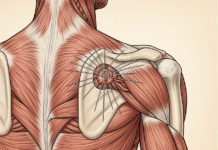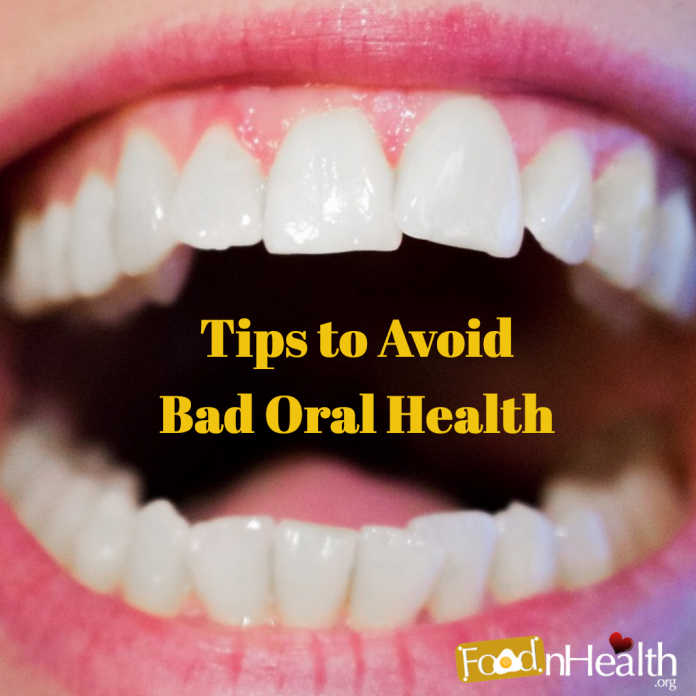When it comes to taking care of your teeth, who knows what’s bad and what’s good anymore? Taking care of your teeth can certainly be a full-time job. The trick is to commit a few good things to memory and to habit. Here are some helpful tips for keeping your smile healthy.
Watch What You Drink

Sports drinks and bottled water seem like a tasty and refreshing way to rehydrate, but did you know that they can cause serious problems for your teeth?
•Sports drinks are high in acidic components and sugar. The acid can cause erosion and the acid-producing bacteria feed on the sugar that builds up in the cracks of your teeth. This is increasing the risk for tooth decay and cavities.
•What about bottled water? Although avoiding sports drinks and switching to water may seem like the solution, be careful about what water you’re drinking. Tap water contains fluoride which helps strengthen the enamel of your teeth but most bottled waters contain too little fluoride. A healthy alternative is to buy a reusable water bottle and refill it from the faucet.
These are just a few examples of things that may appear healthy, but are unhealthy for the health of your mouth. It’s a good idea to do some research on the drinks that commonly show up during your day-to-day routine to see what they could be doing to your teeth.
Watch What You Eat
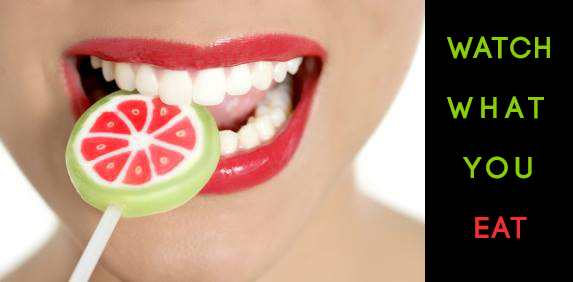
There are also many unhealthy foods you should avoid for the sake of your teeth. This isn’t your typical diet but more of a diet for your mouth.
•We’ve all been told that candy will rot our teeth. While eating candy may rot your teeth, it’s really just the sugar that’s in the candy that causes the erosion. Keep in mind that soft drinks, sweetened teas and juices are high in sugar as well and these drinks coat nearly the entirety of your teeth increasing the potential for erosion.
•Foods that stick to your teeth are something you should consider eating in moderation. Bananas are an example of this because they tend to stay on your teeth throughout the day (whether you realize it or not!). However, some fruits can help increase the good health of your teeth. Fresh fruits (such as apples) actually contribute to good oral health because they can help remove loose food from and clean your teeth.
Don’t Brush at the Wrong Time
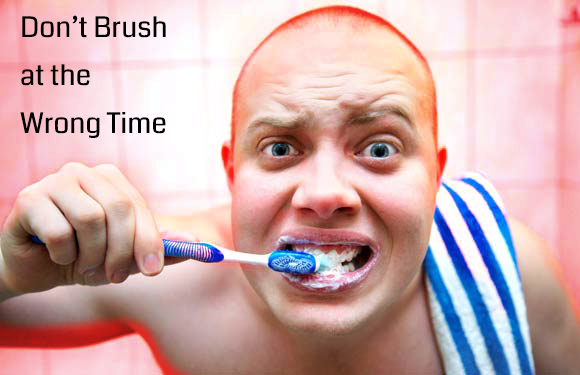
You might think frequently brushing your teeth would improve the health of your teeth. In this case, however, more isn’t necessarily better. Although we’ve been taught that brushing our teeth after every meal is crucial for a healthy smile, it really depends on what you’ve been eating or drinking.
We’ve all heard that drinks like wine and soft drinks can cause damage to our teeth, but brushing them immediately after isn’t always the best option. It can actually increase erosion in your teeth. Instead, try rinsing your mouth with water and wait at least one hour before brushing with toothpaste.
Be Careful with Hard-Bristled Brushes
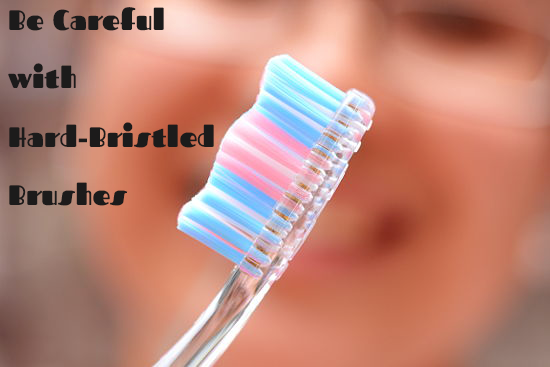
The biggest concern with your toothbrush is what it could be doing to your gums. Hard-bristled toothbrushescan cause a lot of damage. Using a toothbrush with softer bristles and gently brushing can make all the difference!Try to brush in a circular motion instead of a back-and-forth motion which can increase receding in your gums.
There’s a lot to consider when it comes to maintaining good oral health. But with a little education and persistence, maintaining the health of your mouthwill become easy and give you a long-lasting, beautiful smile!












